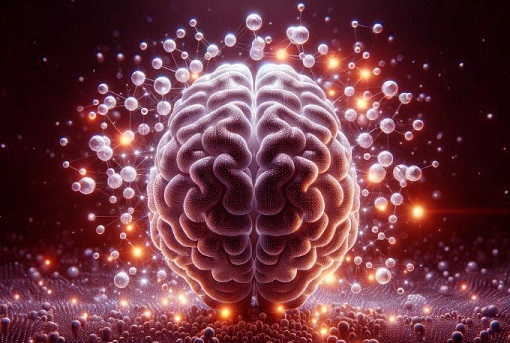Breakthrough in Neurodegenerative Disease Treatment Using Incretin-Based Multi-Agonist Peptides
Nikhil Prasad Fact checked by:Thailand Medical News Team Jul 21, 2024 8 months, 4 weeks, 2 days, 10 hours, 31 minutes ago
Alzheimer News:
A Ray of Hope for Neurodegenerative Disease
Neurodegenerative diseases like Alzheimer’s and Parkinson’s have long plagued millions worldwide, with few effective treatments available. However, a new study offers a glimmer of hope. Researchers from the National Institute on Aging and the National Institute on Drug Abuse, both part of the United States of America National Institutes of Health (NIH) in Baltimore, Maryland, have discovered that incretin-based multi-agonist peptides could be a game-changer in the fight against these debilitating conditions. This
Alzheimer News report delves into the study’s fascinating findings, shedding light on how these peptides may protect the brain and reduce inflammation.
 Breakthrough in Neurodegenerative Disease Treatment Using Incretin-Based Multi-Agonist Peptides
Understanding Incretin-Based Drugs
Breakthrough in Neurodegenerative Disease Treatment Using Incretin-Based Multi-Agonist Peptides
Understanding Incretin-Based Drugs
Incretin-based drugs, particularly glucagon-like peptide-1 (GLP-1) receptor agonists, are widely used to treat type 2 diabetes mellitus (T2DM) and obesity.
These drugs enhance insulin sensitivity and often promote weight loss. Recently, researchers have developed new unimolecular peptides that target multiple incretin-related receptors, including the glucose-dependent insulinotropic polypeptide (GIP) receptor (GIPR) and the glucagon receptor (GcgR). These “multi-agonists” aim to enhance the benefits of existing treatments.
The researchers used human and mouse microglial cell lines, HMC3 and IMG, as well as the human neuroblastoma SH-SY5Y cell line, to study the neuroprotective and anti-inflammatory properties of these multi-agonists. The results were promising, suggesting that these new compounds could outperform single GLP-1 receptor agonists in treating neurodegenerative diseases.
Key Findings: Neuroprotection and Anti-Inflammation
The study demonstrated that the selected GLP-1R/GIPR dual agonists and a GLP-1R/GIPR/GcgR triple agonist have remarkable neurotrophic and neuroprotective effects. These multi-agonists also exhibited strong anti-inflammatory properties, reducing microglial cyclooxygenase 2 (COX2) expression, nitrite production, and pro-inflammatory cytokine release. In contrast to single GLP-1 receptor agonists, the multi-agonists significantly enhanced cell viability and reduced oxidative stress in both neuronal and microglial cells.
Protecting Neurons from Oxidative Stress
Oxidative stress is a major contributor to neurodegenerative diseases. The study found that pre-treating cells with multi-agonists before exposing them to hydrogen peroxide (H2O2), a substance that induces oxidative stress, significantly improved cell viability. In SH-SY5Y neuronal cells, the dual and triple agonists significantly reduced reactive oxygen species (ROS) levels, demonstrating their superior antioxidative properties compared to single GLP-1 receptor agonists.
Combating Inflamm
ation in the Brain
Chronic neuroinflammation is a hallmark of neurodegenerative diseases. The study revealed that the multi-agonists were highly effective in reducing inflammation. In mouse microglial cells (IMG), the dual and triple agonists significantly reduced the production of pro-inflammatory cytokines (TNF-α and IL-6), nitrite, and prostaglandin E2 (PGE2) following an inflammatory challenge with lipopolysaccharide (LPS). These results highlight the potential of multi-agonists to mitigate neuroinflammation more effectively than single agonists.
Potential Mechanisms of Action
The study suggests that the enhanced benefits of multi-agonists could be attributed to their ability to activate multiple receptors simultaneously, leading to a broader range of therapeutic effects. For instance, the dual and triple agonists may enhance cell survival and proliferation through the activation of mitogen-activated protein kinase (MAPK)/extracellular signal-regulated kinase (ERK) signaling pathways. They may also exert antiapoptotic and antioxidative effects through the activation of protein kinase A (PKA) and the subsequent production of cyclic adenosine monophosphate (cAMP).
Additionally, the multi-agonists appear to reduce inflammation by inhibiting nuclear factor kappa-light-chain-enhancer of activated B cells (NF-κB), a key driver of pro-inflammatory responses. This inhibition likely results in reduced COX2 expression and decreased production of inflammatory mediators such as PGE2 and nitric oxide.
A Step Forward in Treating Neurodegenerative Diseases
The findings from this study are significant, suggesting that incretin-based multi-agonists could offer a novel therapeutic strategy for neurodegenerative diseases. The dual and triple agonists not only protect neurons and reduce inflammation but also show potential for greater efficacy than single GLP-1 receptor agonists. These results pave the way for further research and clinical trials to explore the full potential of multi-agonists in treating diseases like Alzheimer’s and Parkinson’s.
The study findings were published in the peer-reviewed journal: Biomolecules.
https://www.mdpi.com/2218-273X/14/7/872
For the latest
Alzheimer News, keep on logging to Thailand Medical News.
Read Also:
https://www.thailandmedical.news/news/how-sars-cov-2-spike-protein-triggers-neurodegenerative-diseases-and-the-potential-of-metformin-as-a-therapeutic-remedy
https://www.thailandmedical.news/news/dantrolene-exhibits-neuroprotective-properties-in-various-neurodegenerative-diseases
